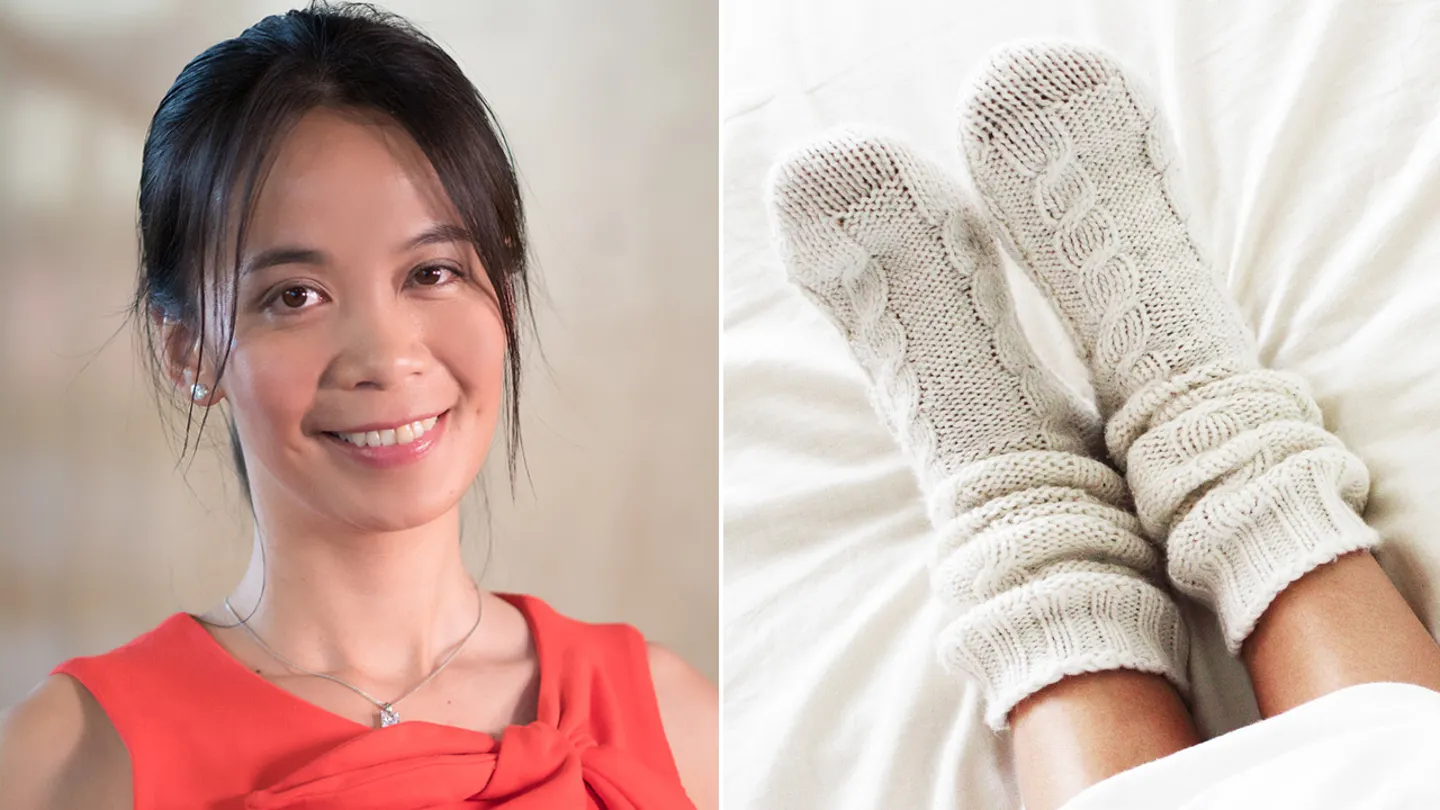When it comes to improving sleep, there are plenty of widely known tips, such as maintaining a regular bedtime, using blackout curtains, avoiding electronics as you wind down and more — but one less common idea is to warm up your feet.
Some studies have shown that people who wore socks to bed or used other foot-warming methods fell asleep faster and stayed asleep longer, according to the National Sleep Foundation in Virginia.
Dr Biquan Luo, a biomedical scientist based in San Francisco, shared her insights into why warming your feet can help you get more sleep — and better sleep.
“Warming the feet can have a positive impact on sleep for many people, primarily because of its effect in promoting lower core body temperature and relaxation,” she said.
Core body temperature plays a crucial role in regulating the sleep-wake cycle, Luo noted.
“As we sleep, our core temperature naturally drops as part of our circadian rhythm,” she said.
“This decline starts at the beginning of sleep and reaches its lowest point during the early morning hours. Decrease of the core body temperature helps the body fall and stay asleep.”
Warming the feet — either by using a heating pad, taking a warm bath, using a foot spa or wearing warm socks — can dilate the blood vessels in the feet, causing them to expand and hold more blood, Luo explained.
“This dilation allows more blood to flow from other parts of the body to the feet. As a result, it can help dissipate body heat and lower the core body temperature.”
The sensation of warmth on the feet can be soothing and relaxing, making it easier to unwind and fall asleep, according to the doctor.
It can also help people who have poor circulation, as reduced blood flow to the hands and feet can lead to cold and numb sensations, she added.
“In such cases, gently warming the feet can provide relief by increasing blood flow and alleviating discomfort, further helping them fall asleep,” said Luo.
Although warming the feet promotes better sleep, the doctor noted that individual preferences vary — so what works for one person may not work for another.
“Some people may prefer cooler feet when they sleep and find that warming their feet disrupts their sleep,” she said.
For those who decide to try warming their feet before bed, Luo emphasized the importance of avoiding discomfort or injuries from overheating.
Elderly individuals also have a decreased heat perception, making them especially vulnerable to injuries from overheating.
“In summary, warming the feet before sleep can be a helpful tip for potentially better sleep, but the effectiveness of this approach may vary from person to person, so it’s important to pay attention to your own comfort and sleep preferences,” the doctor said.
“If you have concerns about your sleep quality or maintaining the right temperature for sleep, don’t hesitate to consult with a health care professional for personalized advice.”
foxnews




